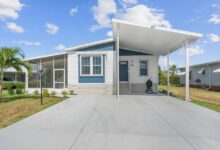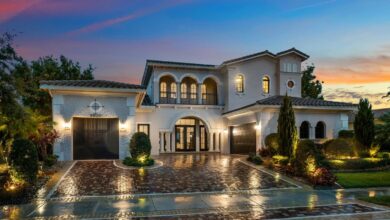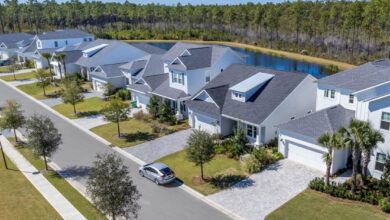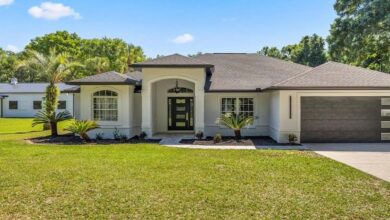Mobile Homes for Sale
Mobile homes offer an affordable and versatile housing option for those looking for a cost-effective alternative to traditional homes. Whether you’re downsizing, starting a new chapter in life, or seeking an affordable solution, mobile homes for sale can be a great choice. In this article, we’ll dive into the details of mobile homes, the different options available, how to buy, and the benefits they offer.
What Are Mobile Homes?
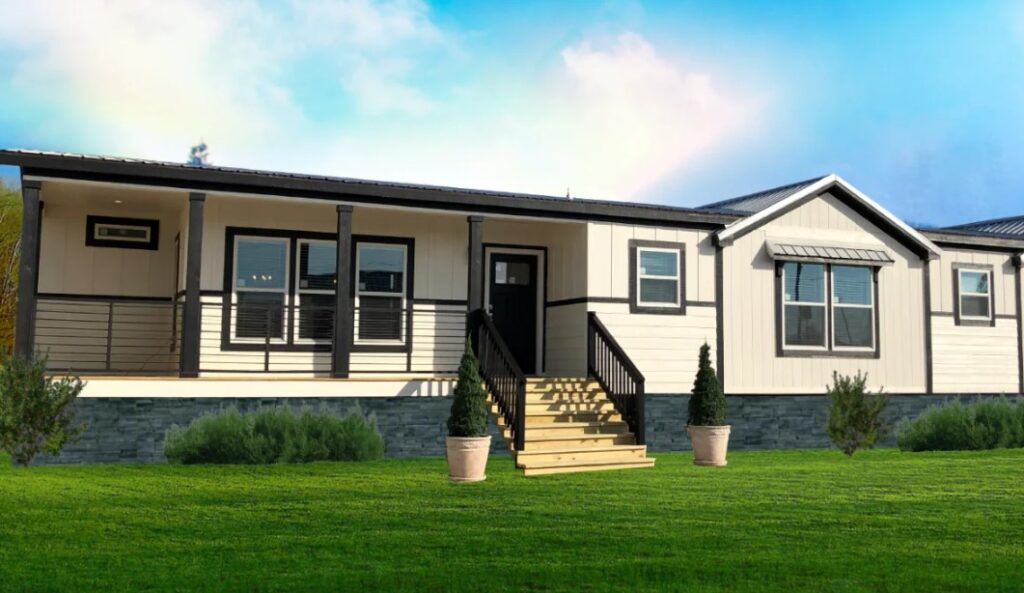
A mobile home is a prefabricated structure built in a factory and then transported to a specific location. Unlike traditional homes, which are built on-site, mobile homes are built in a factory environment and then moved to the desired location. Mobile homes are often a popular choice for people looking to downsize, retire, or find a more affordable housing option.
Key Features of Mobile Homes
Mobile homes come with various features that can be customized based on your needs. They typically include:
- Energy-efficient insulation: Helps maintain a comfortable temperature while reducing energy costs.
- Modern kitchen and bathroom amenities: Includes updated appliances and finishes.
- Spacious floor plans: Many mobile homes offer open-concept living spaces.
- Durable exteriors: Often made of metal or vinyl for weather resistance and easy maintenance.
Mobile homes can range in size from small single-wide units to larger double-wide units, giving you a variety of choices depending on your preferences.
Benefits of Mobile Homes for Sale
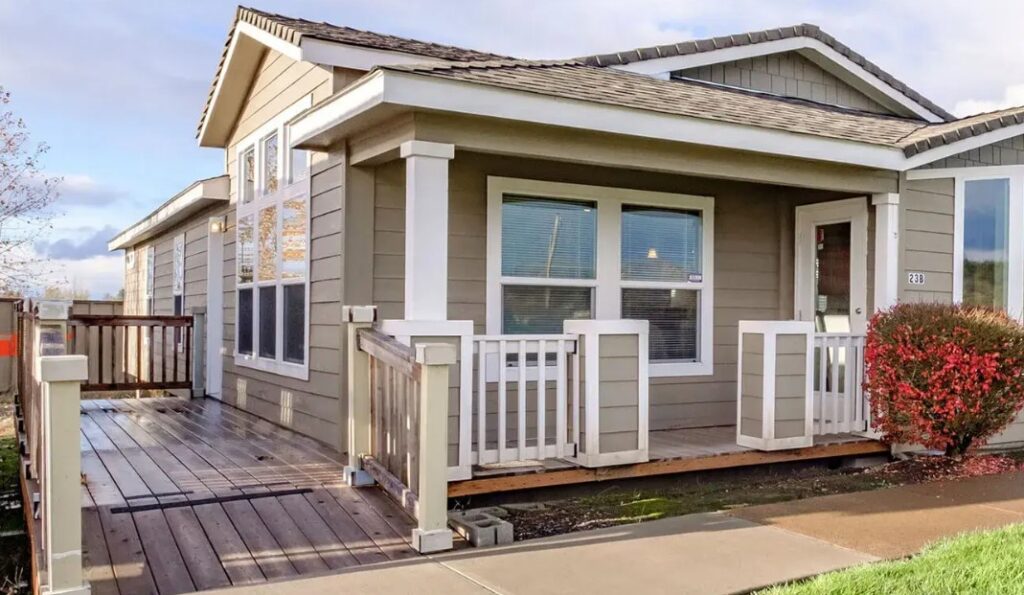
Mobile homes provide several benefits that make them an attractive option for many buyers. Below are some of the most notable advantages:
1. Affordability
One of the main reasons people turn to mobile homes is their cost-effectiveness. They are often much more affordable than traditional homes. If you are working with a tight budget, mobile homes provide a fantastic alternative without sacrificing quality or comfort.
Mobile homes also come with lower property taxes compared to traditional houses, further reducing the overall cost of homeownership. Additionally, mobile homes have lower utility bills, especially if they are built with energy-efficient features.
2. Flexibility
Mobile homes provide a flexible living arrangement. Whether you want to live in a mobile home park or place it on a private lot, you have more options than you might with a traditional home. This flexibility can be especially valuable for those who want to relocate without the hassle of buying and selling traditional property.
3. Quick and Easy Move-In
Another advantage of mobile homes is that they can be ready for occupancy within a short period of time. Unlike traditional homes, which can take months to build, mobile homes can be constructed in a factory setting and transported to your location. This makes it easier and faster to move in.
4. Customization
Today’s mobile homes come in a variety of designs, layouts, and finishes, making it easy to find one that suits your style and needs. Many mobile homes are designed to be customizable, so you can choose the finishes, appliances, and features that are most important to you.
Top Mobile Homes for Sale in 2024
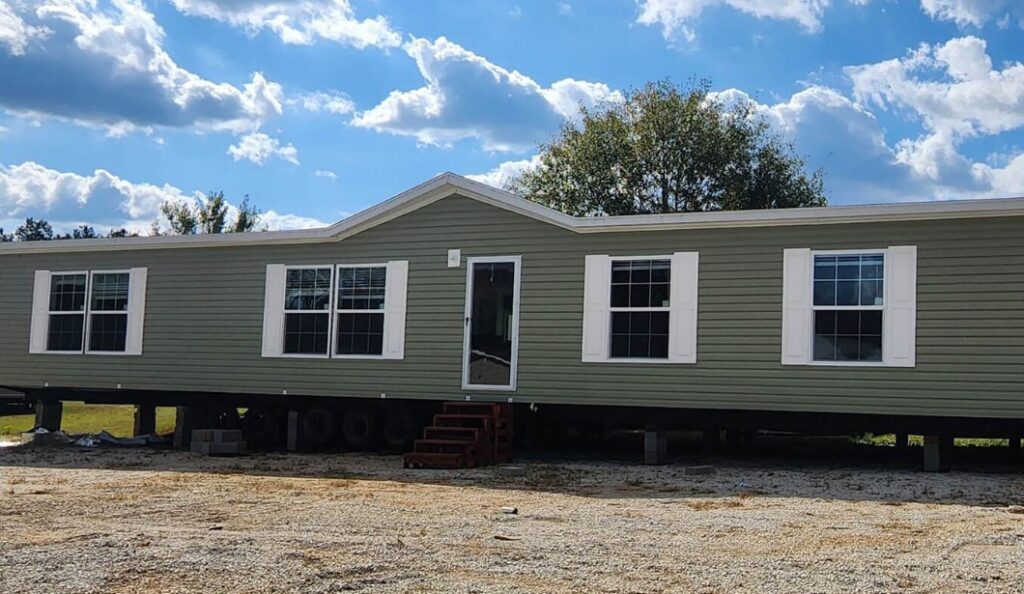
In 2024, there are several standout mobile homes that offer fantastic features, quality construction, and comfort. Here are some of the best options available on the market:
1. Clayton Homes – Crest Single Wide
Clayton Homes has been a trusted name in the mobile home industry for many years. The Crest Single Wide is one of their top offerings in the single-wide category.
Price: Starts at $50,000
Features:
- Spacious living areas
- Modern kitchen with energy-efficient appliances
- High-quality insulation for better energy savings
- Durable exterior finishes for long-lasting performance
Pros:
- Affordable entry-level mobile home
- Highly customizable layouts
- Energy-efficient design
Cons:
- Smaller living space compared to double-wide models
- May not be ideal for larger families
Where to Buy: You can purchase the Crest Single Wide from Clayton Homes.
2. Fleetwood Homes – Shenandoah Double Wide
Fleetwood Homes is another well-known brand in the mobile home industry. Their Shenandoah Double Wide is perfect for larger families or those who need extra space.
Price: Starts at $80,000
Features:
- 3 bedrooms and 2 bathrooms
- Open floor plan with modern design
- Energy-efficient windows
- Fully equipped kitchen with premium appliances
Pros:
- Offers plenty of living space
- High-quality materials used in construction
- Great for larger families
Cons:
- Higher price point
- Larger size may not fit on all lots
Where to Buy: You can find the Shenandoah Double Wide at Fleetwood Homes.
3. Champion Homes – Clayton TruMH Single Wide
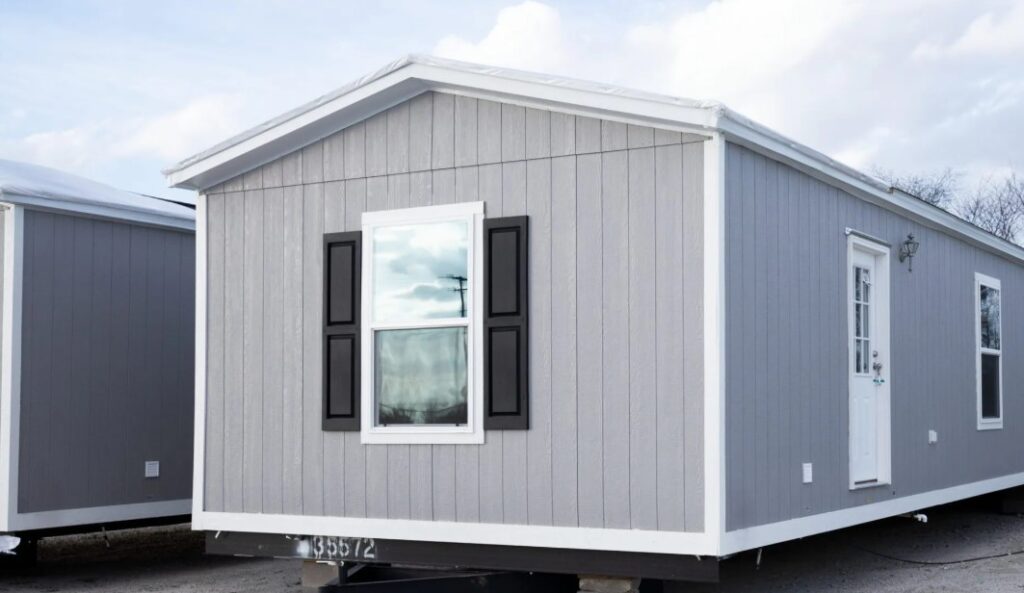
Champion Homes has an impressive range of mobile homes, including the Clayton TruMH Single Wide, which is designed for affordability without sacrificing quality.
Price: Starts at $45,000
Features:
- Simple, efficient design
- 1 to 2-bedroom layout
- Efficient insulation and weather-resistant construction
Pros:
- Very budget-friendly
- Efficient design for those who need just the basics
- Low maintenance and long-lasting materials
Cons:
- Limited space for larger families
- Basic finishes, fewer customization options
Where to Buy: You can check out the Clayton TruMH Single Wide on Champion Homes.
4. Skyline Homes – Athens Double Wide
Skyline Homes offers the Athens Double Wide, a stylish and spacious mobile home with modern features and finishes.
Price: Starts at $85,000
Features:
- 3 bedrooms and 2 bathrooms
- High-end finishes and fixtures
- Energy-efficient design with double-pane windows
- Fully equipped kitchen with stainless steel appliances
Pros:
- Very spacious with high-quality finishes
- Great for families
- Energy-efficient design reduces utility bills
Cons:
- Higher cost compared to entry-level models
- Requires more space for installation
Where to Buy: Purchase the Athens Double Wide from Skyline Homes.
5. Cavco Homes – Cavco Value Series
Cavco Homes provides affordable housing solutions with their Cavco Value Series, a mobile home that focuses on durability and simplicity.
Price: Starts at $40,000
Features:
- Multiple floor plans available
- Affordable yet durable construction
- Low-maintenance exteriors and interiors
Pros:
- Budget-friendly without compromising on quality
- Easy to maintain
- Available in various sizes and layouts
Cons:
- Limited customization options
- Smaller living space
Where to Buy: You can buy the Cavco Value Series from Cavco Homes.
How to Buy a Mobile Home
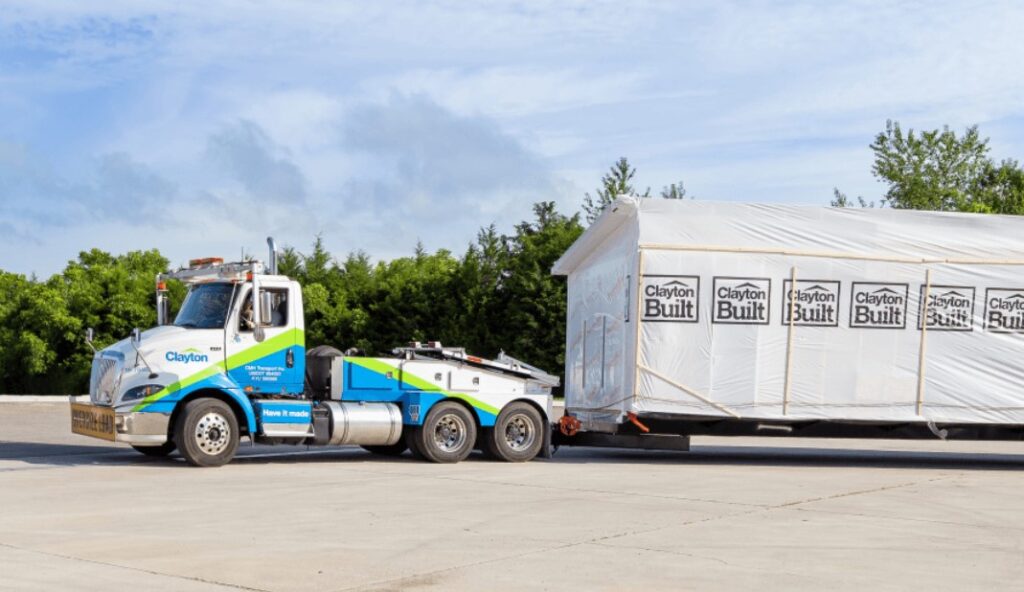
Purchasing a mobile home can be a major decision, but it offers a cost-effective and flexible housing solution. Whether you’re interested in downsizing, relocating, or starting a new chapter in life, a mobile home might be the ideal option. Buying a mobile home requires careful planning, research, and understanding of various factors such as cost, financing options, and location. Below is a detailed step-by-step guide to help you navigate the process of buying a mobile home.
1. Determine Your Budget
Before you begin looking at mobile homes, the first and most important step is to determine your budget. Mobile homes come in a wide range of prices, and knowing how much you can afford will help you narrow down your choices. Consider the following factors when setting your budget:
- Down Payment: Typically, you’ll need to put down 5% to 20% of the total cost of the mobile home as a down payment. Some lenders may offer lower down payment options, but putting down a larger amount can reduce your monthly payments and interest rates.
- Monthly Payments: Consider how much you can afford to pay monthly, including the cost of the mobile home, land (if applicable), utilities, and maintenance. Mobile homes tend to have lower monthly payments compared to traditional homes, but it’s important to ensure that you’re comfortable with the financial commitment.
- Additional Costs: Don’t forget to factor in extra costs such as transportation, installation, insurance, property taxes, and utility setup. If you’re buying land or a space in a mobile home park, that will also be an additional cost.
2. Research and Choose the Type of Mobile Home
There are several types of mobile homes, and selecting the right one will depend on your needs, preferences, and budget. Understanding the different types of mobile homes is crucial for making an informed decision.
- Single-Wide Mobile Homes: These are typically smaller, narrower homes that are often less expensive. Single-wide mobile homes are ideal for people who want a more compact living space and have limited land. They typically have 1 to 3 bedrooms and can range from 600 to 1,400 square feet.
- Double-Wide Mobile Homes: Double-wide homes are larger and offer more space than single-wides. These homes are often more comfortable for larger families, offering more than 1,000 square feet of living space. The cost of a double-wide mobile home is generally higher, but they are still an affordable option compared to traditional homes.
- Triple-Wide Mobile Homes: Although less common, triple-wide homes are spacious, luxurious options for those who need even more room. These homes can exceed 2,000 square feet and typically feature three or more bedrooms, multiple bathrooms, and open floor plans.
3. Research Mobile Home Dealers and Manufacturers
Once you’ve decided on the type and size of the mobile home that fits your needs, it’s time to research the mobile home dealers and manufacturers. There are many reputable mobile home manufacturers, each offering a range of models with different features. Some of the most well-known manufacturers include:
- Clayton Homes
- Fleetwood Homes
- Cavco Homes
- Skyline Homes
- Champion Homes
You should visit their websites and browse through the different models, floor plans, and customization options available. Consider reading reviews and testimonials from previous buyers to get an idea of the quality and customer service provided by each manufacturer.
4. Decide Where You Want to Live
The location of your mobile home is just as important as the home itself. Mobile homes can be placed in a variety of locations, including:
- Mobile Home Parks: Many people choose to buy a mobile home and place it in a mobile home park. These parks provide ready-to-use infrastructure, including utilities, roads, and community amenities. The cost of renting a space in a mobile home park typically ranges from $300 to $700 per month, depending on the location.
- Private Land: If you own or plan to buy land, you can place your mobile home on that property. This option may be more expensive upfront, but it offers greater privacy and flexibility. You’ll also have to account for the costs of utilities and infrastructure, such as water, sewage, and electricity.
- Community Living: In some cases, mobile homes are placed in 55+ or age-restricted communities. If you’re considering this type of community, make sure to check out any specific rules or restrictions related to residency, as well as amenities like social activities, security, and common areas.
5. Visit Mobile Homes in Person
While researching online can help you find the ideal mobile home, it’s essential to visit homes in person before making a purchase. This allows you to see the homes firsthand, check for any damages or issues, and get a sense of the quality of construction.
- Attend Open Houses: Many dealers and manufacturers offer open houses or showings where you can tour available mobile homes. This gives you an opportunity to walk through different models and floor plans.
- Inspect the Home: Pay attention to the quality of materials used in the construction, the condition of the appliances, and the general layout. Look for any signs of wear, such as scratches, dents, or water damage. Don’t hesitate to ask the seller for details about the home’s maintenance history.
6. Financing Your Mobile Home
One of the most important aspects of buying a mobile home is financing. Unlike traditional homes, which are usually financed with a standard mortgage, mobile homes often require different types of loans. Here are some common financing options:
- Chattel Loans: This type of loan is specifically designed for personal property like mobile homes that are not permanently affixed to land. Chattel loans typically have shorter repayment terms, higher interest rates, and are only available if the home is not attached to land.
- FHA Loans: If your mobile home is permanently attached to land, you may be eligible for an FHA loan. These loans are backed by the federal government and typically offer lower interest rates and down payment requirements.
- Conventional Loans: If you’re buying a mobile home that is permanently affixed to land, a conventional mortgage may be available. These loans generally require a higher credit score and a larger down payment than FHA loans, but they often offer better terms.
It’s also possible to finance the purchase through the dealer or a mobile home park. Be sure to compare loan terms, interest rates, and repayment options from different lenders to find the best deal.
7. Negotiating the Price
Once you’ve decided on a mobile home, it’s time to negotiate the price. While mobile homes are generally more affordable than traditional homes, there may still be room to negotiate, especially if you’re buying from a dealer.
- Know the Market: Research the market value of similar mobile homes in your area to ensure you’re getting a fair deal. Many mobile home dealers are open to negotiation, particularly if you’re buying a model that has been on their lot for a while.
- Consider Additional Costs: In addition to the base price of the home, be sure to factor in costs for delivery, installation, utilities, and insurance. Don’t hesitate to negotiate these additional costs as well.
- Ask About Discounts: Dealers may offer discounts or promotions, such as special financing deals or reduced installation fees. Be sure to ask if any discounts or promotions are available to help reduce your overall cost.
8. Finalize the Purchase and Complete the Paperwork
Once you’ve agreed on the price, it’s time to finalize the purchase. Ensure that all paperwork is completed, including:
- Bill of Sale: This document outlines the terms of the sale and confirms the price you paid for the mobile home.
- Warranty: Make sure you understand the warranty offered by the manufacturer or dealer, including what is covered and for how long.
- Financing Documents: If you’re financing the mobile home, ensure all loan documents are properly signed and filed. Double-check the interest rates, monthly payments, and loan terms to make sure everything is as expected.
- Title and Registration: If you’re purchasing a used mobile home, you’ll need to transfer the title and register the home with your state’s Department of Motor Vehicles (DMV).
9. Arrange Delivery and Installation
If you’re purchasing a mobile home that is not already installed on land, the final step will be arranging delivery and installation. Delivery typically involves transporting the mobile home to your chosen location, while installation includes setting up the home, hooking up utilities, and ensuring everything is in working order.
- Delivery Time: Depending on the distance and complexity of the delivery, it may take several weeks for your mobile home to arrive.
- Installation Fees: Be prepared to pay for installation, which can range from $2,000 to $7,000 depending on the complexity of the setup.
FAQs
1. What is the average price of a mobile home?
The price of a mobile home can range from $40,000 to $100,000 or more, depending on the size, features, and manufacturer.
2. Can I buy a mobile home if I don’t own land?
Yes, you can buy a mobile home without owning land. Many mobile homes are placed in mobile home parks, which offer rental spaces.
3. Are mobile homes a good investment?
Mobile homes can be a good investment if you are looking for an affordable housing option with low maintenance costs. However, they may not appreciate in value as much as traditional homes, so it’s important to consider your long-term plans.
By following this guide, you’ll be well-equipped to make an informed decision about purchasing a mobile home. Whether you’re looking for a budget-friendly option or a spacious family home, there are plenty of choices available.

